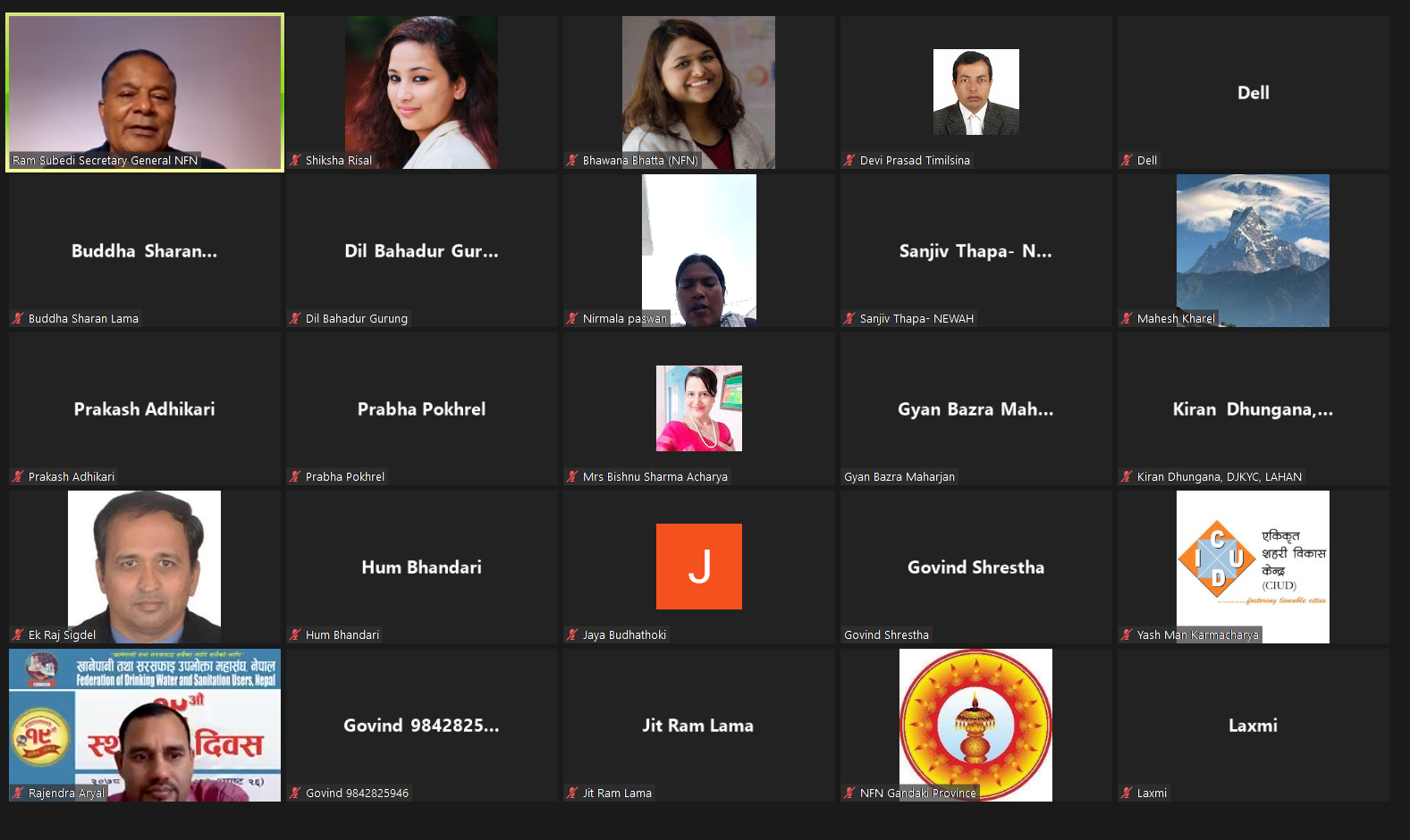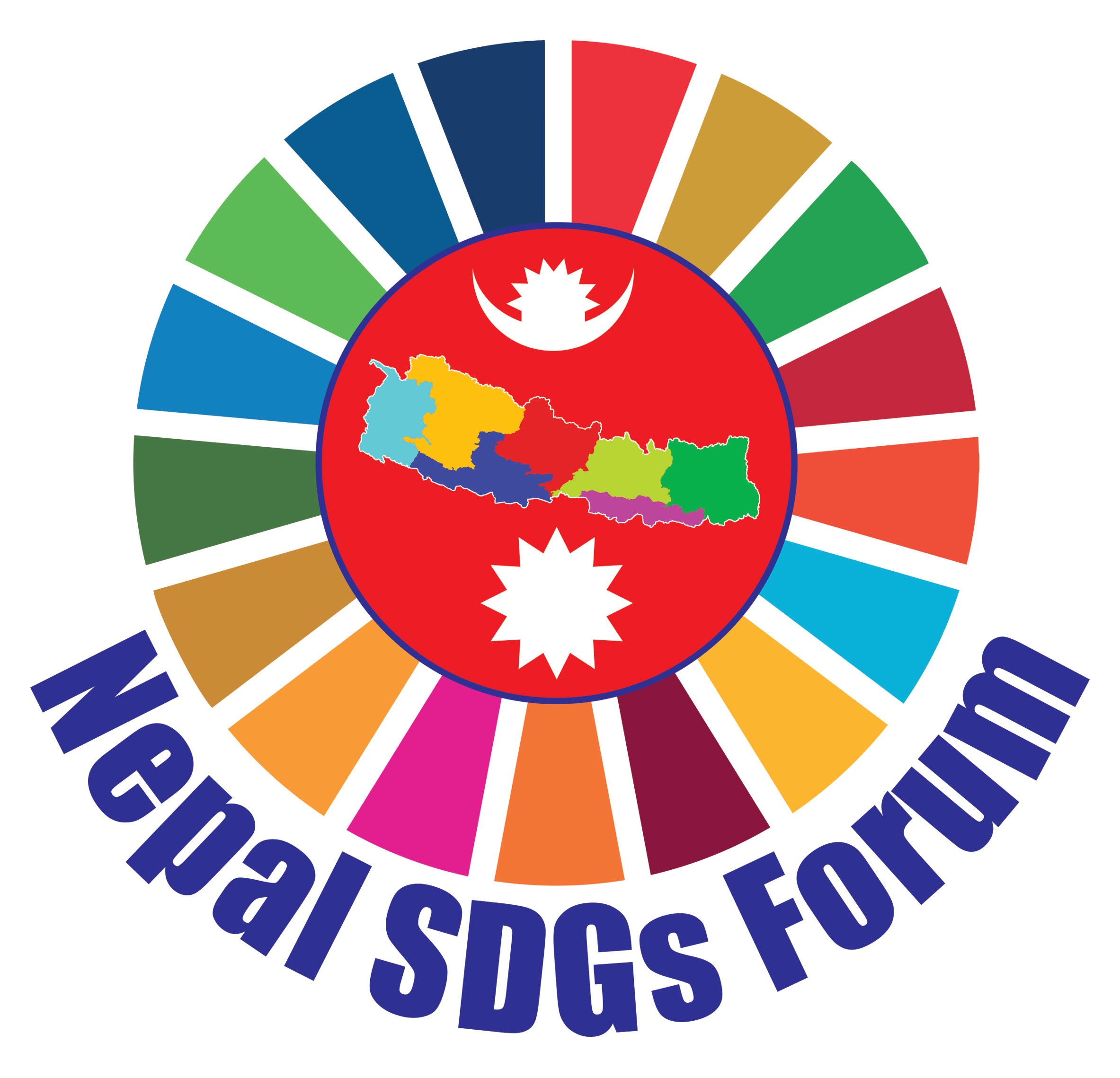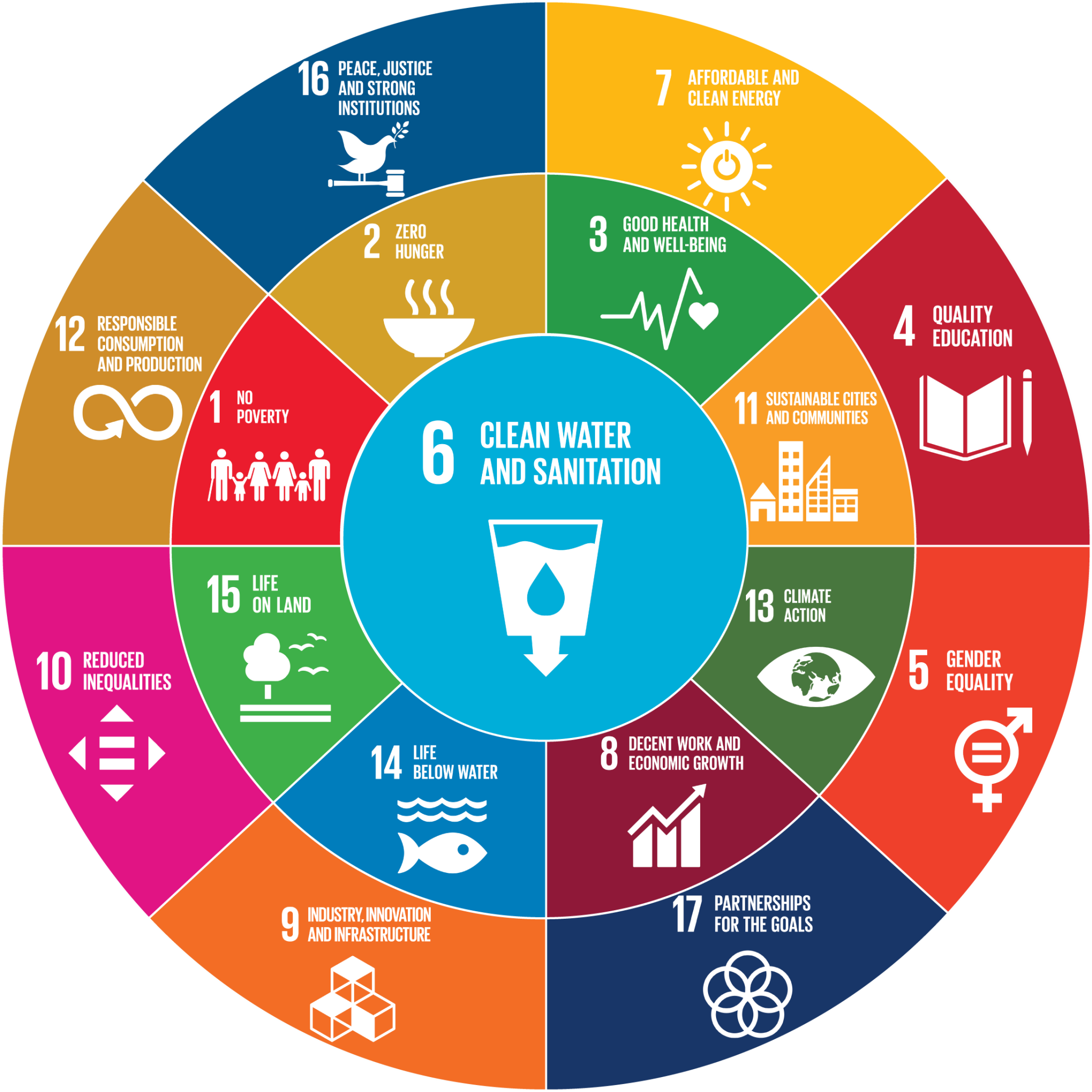Achieving Targets on Water and Sanitation Hinges at Better Coordination Mechanism and Investment
NGO Federation of Nepal, in collaboration with WaterAid Nepal, organized a workshop on planning, monitoring, and information management systems to align water and sanitation (WASH) or SDG 6.1 and 6.2 among three tiers of government.
During the interaction program, the need for coordination among all three tiers of the government was emphasized. Similarly, the need for adequate monitoring as well as reporting mechanisms to collate data and information was discussed.
The policies, strategies, targets, indicators, milestones, monitoring and information management system in relation to the localization of WASH commitments were focused in presentations and discussions. Representatives of the concerned government agencies and experts shared the initiatives, status and also presented gaps and possible mitigation measures.
The webinar was a forum to share from all three levels of government, at least in a representative way. Kirtipur Municipality shared an instance at the local level; Policy and Planning Commission and Ministry of Physical Infrastructure and Development from Bagmati Province brought to light the scenario at the province level; and the presentations and remarks from National Planning Commission and Ministry of Water Supply at the federal level showed policies, initiatives and actions at the federal level.
Setting the scene, Mr. Govinda Shrestha, Policy Specialist at WaterAid Nepal, drew attention to safely managed water supply in which Nepal is far behind. “We need to make additional efforts to achieve SDG 6.1 and 6.2 by 2030”, he added.
Mr. Gyan Bajra Maharjan, head of environment and sanitation department of Kirtipur Municipality presented the works and efforts of the Municipality in regards to water and sanitation. Kirtipur Municipality has been focusing on establishing public toilets as well as disabled-friendly public toilets. Awareness programs have been conducted for 7 years in different schools of the municipality. He realized the need for good coordination and teamwork in achieving targets in water and sanitation.
Similarly, Mr. Prakash Adhikari and Mr. Harihar Pokharel shared policies and actions adopted by the Ministry of Physical Infrastructure and Development, and Policy and Planning Commission of Bagmati Province respectively. The goals included the arrangement of basic drinking water supply in 100% of the households by 2080/2081 and the preparation of infrastructures for organized waste treatment and management. Efforts on localization are being continued and programs like “money from waste” and “zero waste programs” are being implemented in collaboration with local levels. Similarly, for the effective achievement of WASH targets, there are provisions set for effective law and policies, priority setup in organizing programs for basic water supply, and waste management.
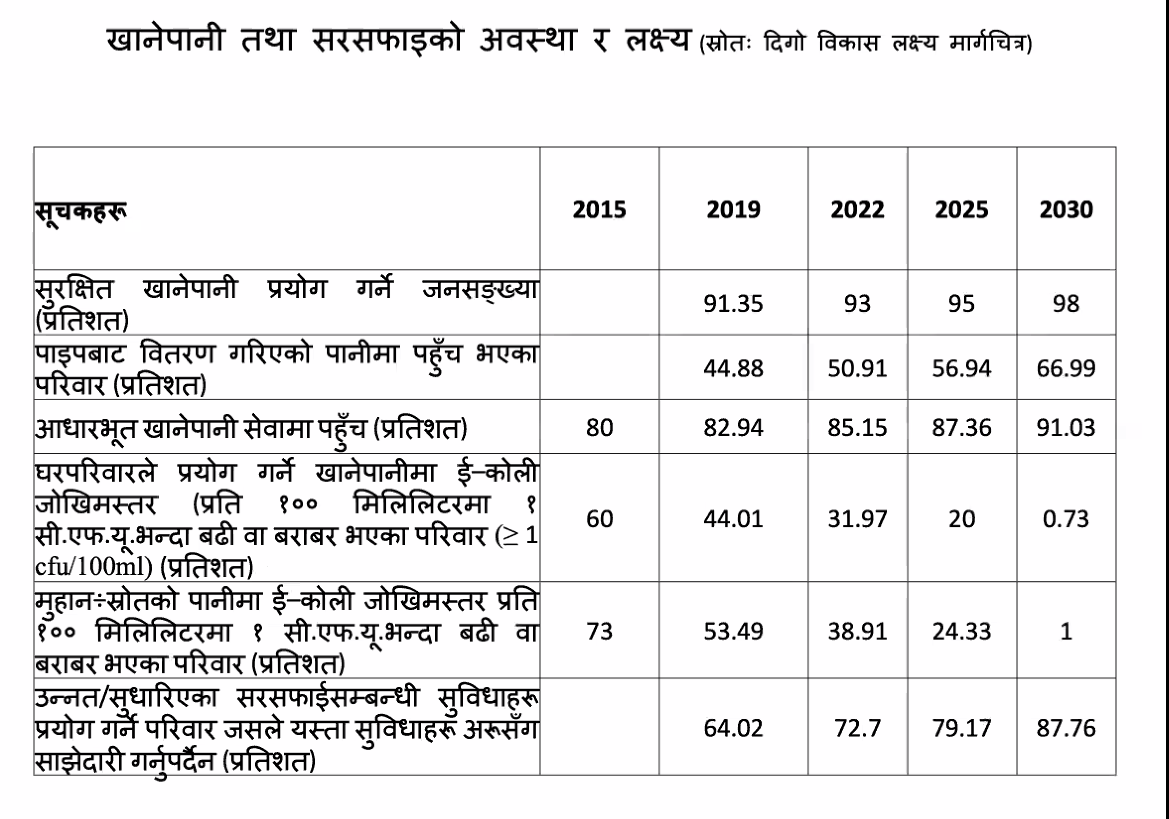
Mr. Yogendra Chitrakar, Senior Divisional Engineer at the Ministry of Water Supply, shared the achievements and challenges of the government in SDG 6. It appears that if the current trend continues, it will be hard to achieve the goal and its targets. Similarly due to climate change and global warming, natural as well as underground sources of water are reported to be depleting. While data show some progress on the SDG 6.1 and 6.2, compared to previous years, there is a lot to do. Although good progress is noticed in the basic water supply and sanitation, quality and inclusive aspects are unlikely to be realized unless different approaches are adopted and investment is increased. While the voices are being raised for the readjustment of the SDG indicators in Nepal. Mr Chitrakar shared the Ministry's proposal to NPC for merging some indicators under SDG 6. One of the good initiatives of the Ministry was setting up of the MIS for water and sanitation at the national level, in order to collect and integrate the real time data. This system is expected to facilitate data collection process through all 753 local governments with a few years.
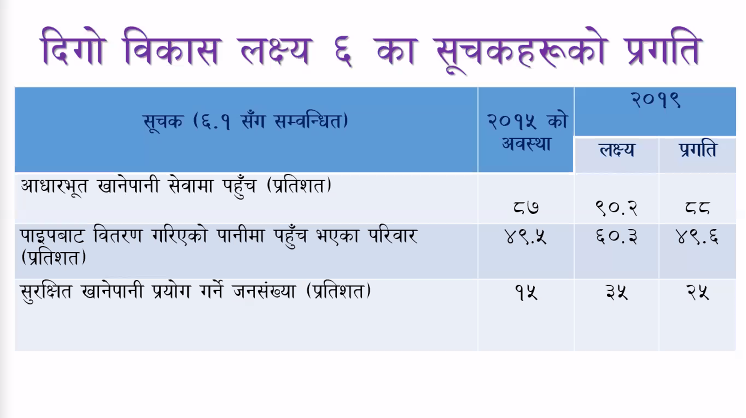
According to the recent joint monitoring report, only 18 percent of the population has access to safely managed water, 49% have access to safely managed sanitation and 62% have access to basic hygiene in Nepal.
Program Director at National Plan Commission, Mr. Mahesh Kharel highlighted how the Fifteenth Periodic Plan of Nepal has integrated the WASH or SDG 6.1 and 6.2 indicators. He said that it is necessary to focus on the supply of quality water. “It’s not about the abundance of water supply but the assurance of quality and safe distribution”, he added. He pointed out the need to establish labs in different parts of the country to test the quality of water being distributed.
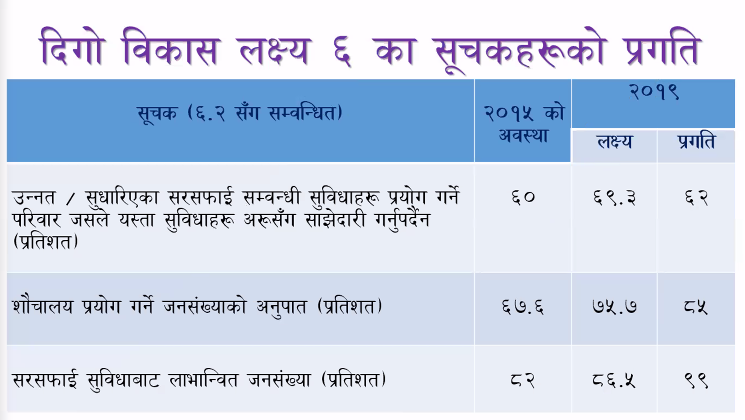
From the presentations from all three tiers of the government, in a representative way, it is obvious that lack of coordination among the three tiers of government has been a major impediment in achieving SDG 6.1 and 6.2. Notably, it may be a similar case with other goals and targets.
In order to achieve SDG 6 and its targets, Ms. Pramila Devi Shakya Bajracharya, Secretary at the Ministry of Water Supply, emphasized the need for coordination among National Planning Commission, the Ministry , CSOs and development partners. “Due to the lack of data management system in the province and local levels and other sectoral agencies, the Ministry of water Supply has not been able to collate the data even though plans and policies on SDG 6 are being implemented”, she added. “The main challenge is the lack of coordination mechanism and financial arrangements due to which the target achievement is showing a slow pace”, she expressed her concern.
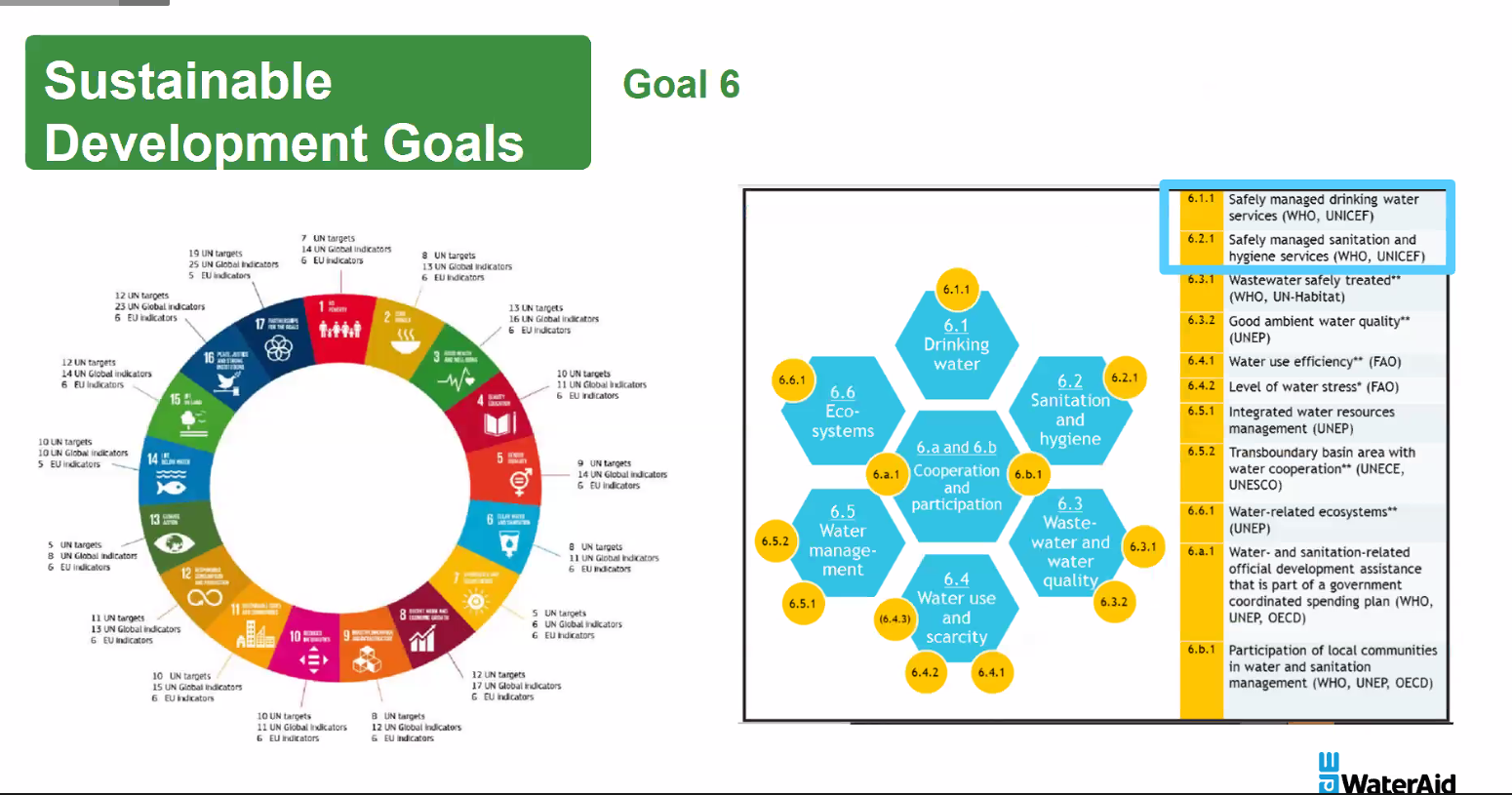
Dr. Dil Bahadur Gurung, Hon. member of the National Planning Commission, also emphasized in his remarks the need for coordination, harmonization and monitoring among all state mechanisms and stakeholders. “We need to take an analytical approach at the WASH policy level”, Dr. Gurung added. Appreciating the WASH facility center at Kirtipur, Dr. Gurung suggested innovative initiatives from the local levels.
During the interaction program, queries were raised on the issues of garbage management and disposal. “It’s been 18 days already that the garbage collection and disposal in Kathmandu is at a halt”, Tika Ram Dahal, Chair of NFN Lalitpur expressed his concern. He asked about the vision of the concerned unit on garbage recycle, reuse, and composting.
Mr Rajendra Aryal, President of FEDWASUN, said that more than 45,000 water and sanitation users groups working for SDG 6.1 and 6.2 need support on their capacity building and mobilization. There are still a lot of places in rural areas which are beyond the reach of clean and safe drinking water. He suggested the repair and maintenance of the old projects as well. Voices were raised on the need for policy reforms as well.
It is important for CSOs to actively engage and call for accelerated progress, advocate for stronger political will backed by actions and adequate resources (both capacity and financing). At the moment, civil society monitoring, observation, analysis, and recommendations to the concerned stakeholders need to be continued and sustained to always highlight the agenda in policy, program, and budget of the governments at all levels. This event was an important milestone for focused discussion in order to localize and integrate SDGs at the subnational level.
The interaction was facilitated by Mr. Ram Subedi, Secretary-General of NFN, and Ms. Bhawana Bhatta, Secretary of NFN, welcomed the guests and participants and highlighted the objective of the event. Finally, President of NFN, Mr. Jitram Lama, concluded the program emphasizing the important role of CSOs in accelerating the SDG 6 and coordination with the three tiers of government. More than 70 participants joined the program from throughout the country.
